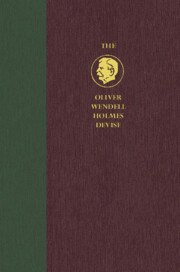3 results

The Hughes Court
- From Progressivism to Pluralism, 1930 to 1941
-
- Published online:
- 13 January 2022
- Print publication:
- 03 February 2022
2 - Friendship
-
- Book:
- The Making of an Alliance
- Published online:
- 23 December 2021
- Print publication:
- 06 January 2022, pp 26-52
-
- Chapter
- Export citation
5 - “No ‘Rubber Stamp’ Ambassador”
-
- Book:
- Rogue Diplomats
- Published online:
- 24 April 2020
- Print publication:
- 21 May 2020, pp 239-301
-
- Chapter
- Export citation

